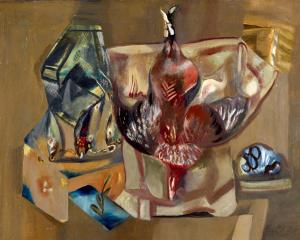
Babies born this year will enter a world shaped by economic recession, global warming, war and increasing crime. Are their parents mad?
Not according to people like Rene Stuitje, whose first child is due in June.
"You could look at it another way - that it's the most interesting time a child could be born," she says.
"It's fascinating, because we're on the brink of some great global change - whether it's a one-world government or global warming or a positive leap in consciousness where people suddenly learn respect for the Earth . . . It's interesting compared with the last couple of thousand years."
Later, the Dunedin student concedes with a smile that it might be a "dubious time to be reproducing".
"On the other hand, women have been having babies since the beginning of time. In ice ages, in Nazi Germany, in Palestine. So I think I can do it."
The 27-year-old is not alone. A total of 64,540 babies were born in New Zealand in the year ended last September, the biggest number in a September year since 1962.
Reports of a baby boom were premature - while the birth rate reached 2.2 babies per woman - the highest in 17 years - it was still only half the level of fertility in 1961. But antenatal classes and child care centres are fuller than the average 5-year-old's toy box.
In the late 1940s, the baby boom reflected the sudden removal of economic and social constraints - the Depression and World War 2 - which had kept people from starting families.
Today, the situation is different, with John Key telling a forum on the family last year that New Zealand is a great country in which to raise children but families face challenges: "Too many Kiwis are struggling to make ends meet . . . Crime is intensifying. Many of our young people are leaving school grossly ill-equipped for the demands of the modern workforce".
To help her daughter deal with such challenges, Miss Stuitje will encourage her to interact with a variety of people and learn from all of them.
"I hope she'll be a strong, adaptable, open-minded child, who respects nature and all living things . . . And hopefully she'll fight for the future of the planet, not just be a zombie like so many [children] sitting all day playing computer games".
She says her child's future will depend on having knowledge and friends, not money: "Being strong within yourself is far more important than financial security because that can go in a minute".
She even says she is thankful for the economic downturn because money has made people selfish and they now have to live another way.
If her daughter is born into a society where love, values and connections with other people are important - even if the economy has to crash - she will be happy for her.
"It will be a better world than the one I was born into; the selfish, materialist world of the '80s - a plastic paradise."
Miss Stuitje does not underestimate the challenges she will face as a single mother without a family or a partner for support. She has never had a father in her life and was only 5 when her mother was hit by a car and killed.
But in the same way she does not buy into "fear-mongering" about the state of the world, she would not bow to the pressure of some who suggested that with no house, career or savings, she should have an abortion.
She has already chosen her baby's name - Alia Lilli - and planned things they can do together, such as travelling to foreign countries.
She wants her daughter to challenge the established order and ask questions - "like me, I suppose". She also wants her to have a concern for other people, not be a "selfish, spoilt consumer brat, like so many children you see these days".
"I have great hopes for her, that she'll be a pioneer and an earth warrior. But if she's a conventionalist simpleton who follows orders, I'll still love her, just be a bit disappointed".
"At this time, a lot of people are worried about the future but it should be something you look forward to and embrace, not fear."
The telecommunications technician says while there has been a lot of talk about a recession, his family has not yet felt the effects and as long as they are "not starving", will be happy.
He and wife Jennifer (both 26), belong to the Lighthouse scripture-based church in Green Island and already have four children aged from 8 months to 7 years.
Mrs Ottley says they have left their fertility to God and seldom worry about money, because they know no matter how many children they have, their needs will be taken care of.
Their children will, they hope, grow into creative people who make the right choices and teach others a good way to live, says Mr Ottley, adding New Zealand is a safe country in which to raise children but has "questionable morals".
His wife says each generation faces new challenges and it is impossible to say what the world will be like in 20 years time when her children are adults.
"In the 20 years since I was a child, the world has changed so much," she says, recalling how if a child was disrespectful to someone in the street, the person would give them a "clip around the ear".
"Now, parents are having a hard time disciplining their own children and you're getting kids who have no respect for anyone or anything, let alone themselves."
Home schooling their children has removed them from many of the pressures others face, she says.
"Talking to your kids is the key to equipping them to deal with life.
"And Garreth and I have a good relationship. The kids know we love each other and that's one of the most important things for children - parents who love each other and give their children security."
Mrs Ottley will encourage her daughters to stay at home to care for their families and her sons to go into trades rather than to university, where they might "rack up a big debt" and still have no prospect of a job.
But though she did make plans for her first child - even choosing a kindergarten by the time she was 6 months old - she does not do it now.
"I don't want them facing the pressure of having to do what I've planned for them."
Mr Mehigan says while many people have a nostalgia for a simplified life, the world has progressively become more complicated and Olivia will face challenges his generation has only faced in part.
The "stable career" is vanishing, meaning his daughter will have to be flexible and highly creative when faced with earning a living. Less money will be available for superannuation payments and, unless there is an increase in immigration, the birth rate will probably decline.
To cope, his daughter will need "all the advantages" her parents and her city can provide.
And the couple, who moved to Dunedin from Australia about four years ago, say the positive environment here was a significant factor in them starting their family now.
"If you bring up a child in Dunedin, you've got an enormous head start - in the quality of the physical environment, the lack of crime, the quality of the schools and the health services.
"It's a friendly, positive place to be, which makes you feel good about having a baby."
Ms Cole used to think the world already had so many people, it did not need her children added to it. But she has changed her view, particularly since giving birth in mid-December.
"Having a baby makes you want to be a better person because you're modelling and teaching yourself to another person . . . and that gives me hope that we might be able to turn around some of the negative things happening in the world."
Parents like herself also hope they are contributing to a solution "because the children we have today may be the ones who solve the problems, if they're solvable".
Every age has its challenges, she says, recalling how as a child she worried that World War 3 was about to erupt.
What is different today is that the world is changing more quickly than before "so it's more of a challenge for parents to know how to educate their children for what's coming next".
Mr Mehigan says that like the post-war baby boom, major world events can lead to "an assertion of something more generally in people's instinct to live".
Unfortunately, the 2000s have been shaped by "negative" events such as 9/11, the Boxing Day tsunami in 2004 and even the Australian bush fires.
"That makes you feel a bit more fragile than otherwise and it's nice to assert something against that. Having a baby is a joyous, positive statement."
A musician who teaches performance, Ms Cole says the Alexander technique she promotes is all about "creativity, spontaneity and adaptability to change" and those are attributes people will need in the future.
A talent and a capacity for friendships will also be in demand, adds Mr Mehigan.
"Those are the support structures you surround yourself with when you find yourself in a new environment. I hope for Olivia that she can find that capacity and develop it."
A professor of languages at the University of Otago, he says his students often do not have a career path in mind but do know they want to work somewhere like Europe or South America.
"Olivia's generation will relate to the world - the whole world - a lot more than we did to begin with, and that's an exciting opportunity."
However, he does not think, like some used to, that technology will "save" people.
"I think we will use technology to manage what we can manage and we'll have to set limits beyond that . . . We'll have to get used to limits in the way we think about the resources of the world and certain opportunities."
Although Ms Cole hopes her daughter will be creative and curious, she does not have any particular plans for her.
A friend had told them they should be prepared to be "re-educated" by Olivia, Mr Mehigan adds.
"Already she tells us what she wants and we respond," he says, as Olivia breastfeeds nearby.
"And that will continue . . . Maybe being a parent is as much about that - responding and being re-educated - as mapping out a plan."
"Money's a great byproduct," Ms Draffin says, as a slightly-jaundiced Taylor wriggles in an incubator nearby.
"But it would be cool that she goes off to work every day loving what she does."
To give her a realistic view of any career she has in mind, the couple will encourage Taylor to experience different sorts of jobs after high school rather than go straight to university.
Mr McPherson studied commerce, then physical education before following his passion and becoming a chef. And he says many people studying at university change their minds about which path they want to follow, sometimes using none of their qualifications when they graduate.
The 27-year-olds say economic recession did not enter into their thinking when they began planning a family. Having a house and stable jobs meant it was the right time and they wanted to be young enough to enjoy outdoor activities with their children when they were teens.
"I had older parents than a lot of my friends did and they weren't as active," says Ms Draffin, who before giving birth was working as a research assistant and finishing her master's in genetics.
"So that was our motivation to have children before we were 30."
Is she concerned that Taylor will face issues like crime and a deteriorating environment?
"The environment is definitely something we think about," she says. "We grow our own vegetables, have a compost bin and have eco-friendly products in the house. We'll have her in cloth nappies as well. We're trying not to make too much of a mess of the place for her.
"But I don't necessarily worry about crime, because it's beyond our control, really. There's not a lot you can do other than raise kids who are aware and who don't put themselves in silly situations, who have independent thought and the ability to make the right decision even if their friends don't think it's cool."
While 21st-century living may come with its challenges, their daughter will also have plenty of opportunities, she adds.
" There's nothing she won't be able to do."












